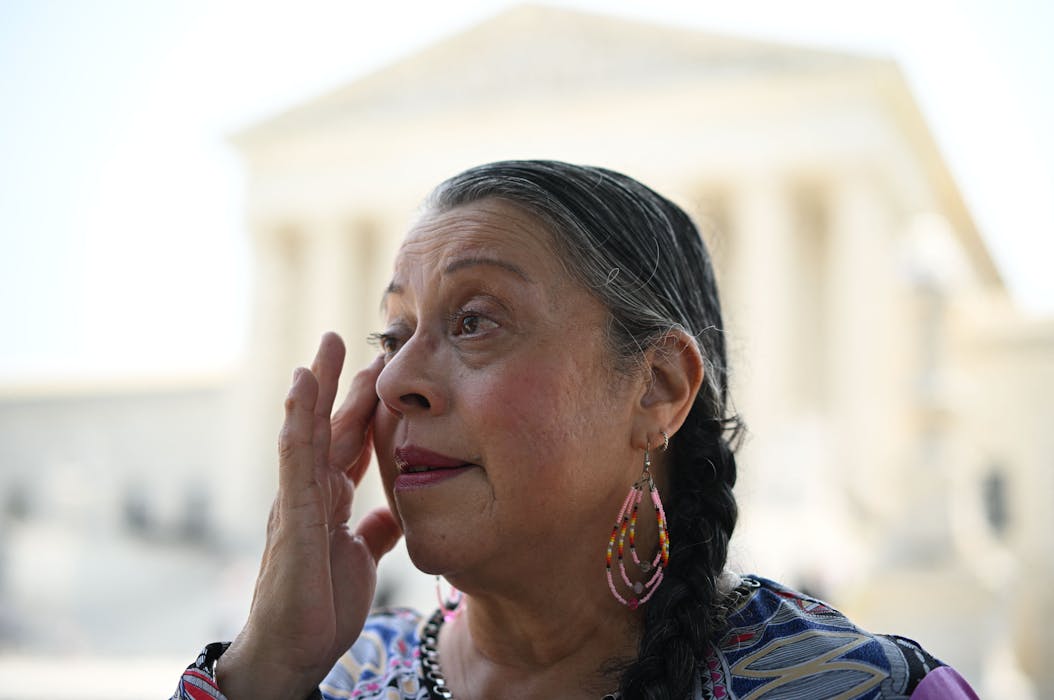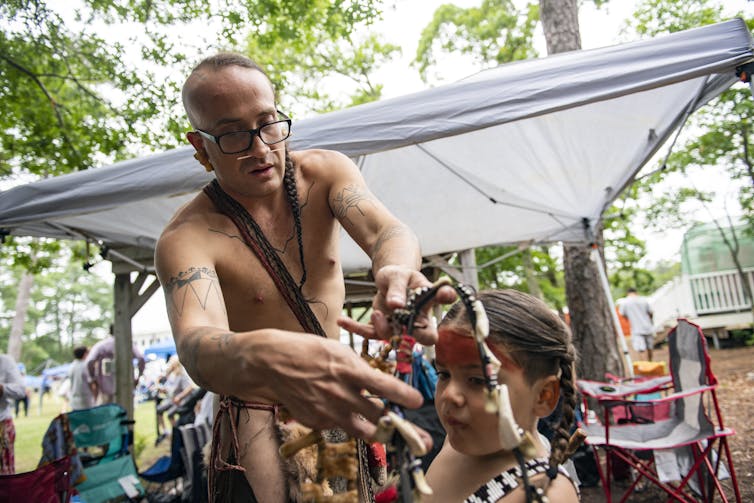Supreme Court affirms Congress's power over Indian affairs, upholds law protecting Native American children

Kirsten Matoy Carlson, Wayne State University
The Supreme Court affirmed the constitutionality of the Indian Child Welfare Act, a 1978 law enacted to protect Native American children in the U.S. and strengthen their families, in a June 15, 2023, ruling. Tribal leaders praised the decision as upholding the basic constitutional principles governing the relationships among Native nations and the federal government.
Congress originally passed the Indian Child Welfare Act in response to requests from tribal leaders, and other advocates for Native Americans, to stop state governments from removing an alarming number of Native children from their families. Before the law took effect, state social welfare agencies were removing between 25% and 35% of all Native American children, and 90% of those removed were sent to be raised by non-Native families.
The Indian Child Welfare Act recognizes the government-to-government relationship Native American nations have with the United States. It covers certain child placements and sets uniform standards for state and tribal courts to follow when they decide American Indian child welfare cases. These standards include provisions that ensure that tribal governments are aware of and can have a say in the placement of Native American children. They aim to reduce the trauma of family and tribal separation by instructing courts to make active efforts to keep families together.
In 2017, the state of Texas and non-Natives seeking to adopt or foster Native American children challenged provisions of the law. They argued that the law exceeds Congress' constitutional powers, impermissibly tells state officials what to do, and illegally discriminates against non-American Indians.
Writing for a 7-2 majority, Justice Amy Coney Barrett wrote, "the bottom line is that we reject all of the petitioners' challenges to the statute."
As a result of the ruling, Native nations' most valuable resource - their children - will continue to gain the benefits of growing up knowing their own Indigenous cultures and communities.
Court and Congress diverge
As my research has shown, Congress and the Supreme Court have increasingly diverged in how they view the laws that relate to Native American tribes.
The court has not consistently deferred to Congress but rather has increasingly claimed the power to be the final arbitrator of American Indian policy. In doing so, it has undermined congressional policies meant to foster tribal governance and protect tribal lands and bodies.
The petitioners in the current case, Haaland v. Brackeen, seized on this trend. They questioned Congress' ability to enact laws affecting tribal governments and their citizens. They argued that Congress lacked the constitutional authority to enact the Indian Child Welfare Act.
From my perspective as an expert in federal Native American law, the court's decision is significant because the court affirmed Congress' constitutional power over American Indian affairs.

A member of the Mashpee Wampanoag Tribe places regalia onto his son before a powwow. Joseph Prezioso/Anadolu Agency via Getty Images
Congress' role in Native American affairs
The majority of the justices responded to the petitioners' arguments by reiterating the court's longstanding characterization of Congress' power over American Indian affairs as "plenary and exclusive."
Writing for the majority, Barrett stated, "Congress's power to legislate with respect to Indians is well-established and broad. Consistent with that breadth, we have not doubted Congress's ability to legislate across a wide range of areas, including criminal law, domestic violence, employment, property, tax, and trade."
Barrett relied on earlier cases to find that Congress' power over American Indian affairs comes from and remains limited by the U.S. Constitution. "We reiterate that Congress's authority to legislate with respect to Indians is not unbounded," she wrote.
The majority concluded, "If there are arguments that [the act] exceeds Congress's authority as our precedent stands today, petitioners do not make them."
Open questions remain
The majority reaffirmed Congress' broad authority over Native American affairs but left other questions unresolved.
The Texas attorney general and the other litigants claimed that the Indian Child Welfare Act discriminates against non-Native Americans by making it harder for them to adopt Native children. The law instructs courts to place children with their relatives - either Native or non-Native, someone in their tribe, or an American Indian family if possible.
The litigants said this preference for placement with an Native family is racial and violated the equal protection clause of the Constitution, which requires government policies to be racially neutral. Tribal nations counter that federal laws and previous court decisions have defined Native status as a political, not racial, designation. The Court did not deal with this claim.
Justice Brett Kavanaugh wrote separately to emphasize the seriousness of these claims. He stated, "[t]he equal protection issue remains undecided."
Kavanaugh's words may invite future challenges to the Indian Child Welfare Act and to the political status of American Indians as citizens of tribal governments.
In the meantime, the court's decision ensures that Native children will continue to experience the social and health benefits of being raised in their tribal cultures.
More importantly, the court's decision acknowledges the vital, constitutional role that Congress plays in Native American affairs and defers to a congressional policy protective of Native nations and their people.![]()
Kirsten Matoy Carlson, Professor of Law and Adjunct Professor of Political Science, Wayne State University
This article is republished from The Conversation under a Creative Commons license. Read the original article.